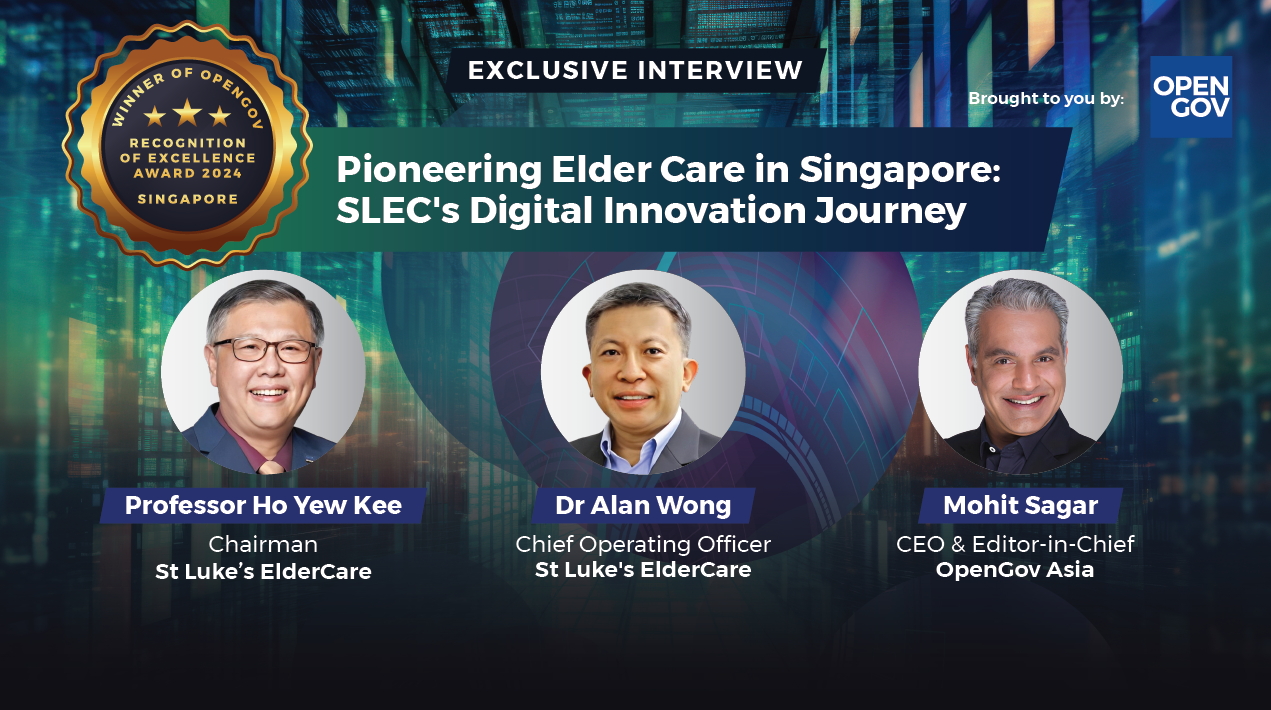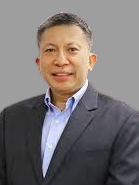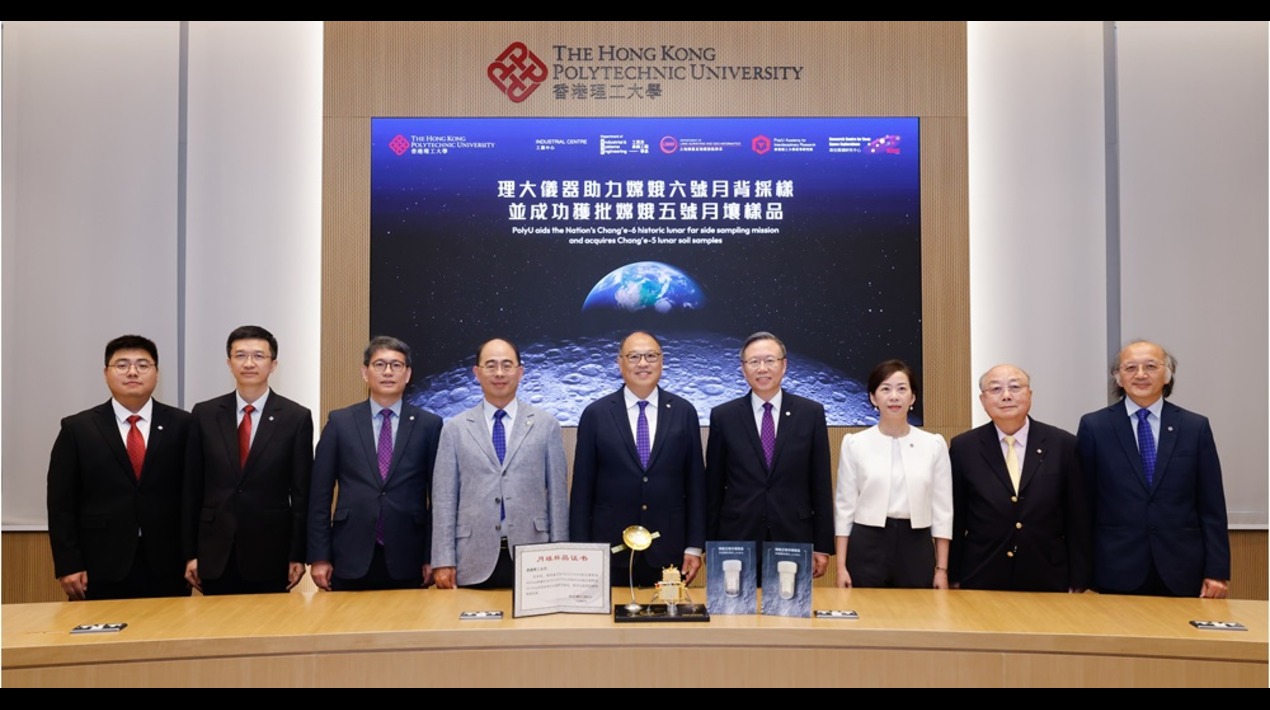
|
Getting your Trinity Audio player ready...
|
In a bustling city like Singapore, where the population enjoys a high quality of life, excellent citizen services and longevity due to good nutrition, routines and environment, elder care has become a significant area of focus. With an ageing population and rising healthcare service demands, St Luke’s ElderCare (SLEC) is leading the way with its innovative approaches. This charitable healthcare provider is pioneering the transformation of elder care through the use of digital technology.
St Luke’s ElderCare’s implementation of advanced digital solutions in Computerised Asset Management System (CAMS) and Transport Management System (TMS) earned them a Recognition of Excellence award at the Singapore OpenGov Leadership Forum 2024. This prestigious accolade underscores their dedication to using technology to enhance the quality of life for the elderly.
In January 2021, SLEC began a digital transformation journey that would redefine how elder care services are managed and delivered. The motivation behind this shift was rooted in their values and relational perspective – SLEC wanted to ensure that the elderly are treated as both clients and family members. This philosophy drove them to explore how technology could enhance the quality of care and provide peace of mind to the ageing and their caregivers.
To gain deeper insights into this transformation, Mohit Sagar, the CEO and Editor-in-Chief at OpenGov Asia spoke with Professor Ho Yew Kee, Chairman of St Luke’s ElderCare and Dr Alan Wong, Chief Operating Officer at St Luke’s ElderCare. This valuable discussion shed light on the intricacies of their digital journey and its impact on elder care.

One of the initial steps in that journey, Professor Ho reveals, was the implementation of the Computerised Asset Maintenance System (CAMS). Initially designed as a property management tool, CAMS underwent a significant redesign to meet the specific needs of elder care.
The system is meticulously designed to track planned maintenance and repairs for all assets, including vehicles for transporting elders, ensuring precise monitoring and maintenance of every asset and route.
With CAMS, every asset is meticulously onboarded, contracts are consolidated, logs are recorded and maintained, and communication systems are set in place. By simply snapping a photo of a defect and uploading it to the system, the issue is logged, and approved vendors are promptly notified of the defect or when maintenance is due. In each situation, the issue is tracked until resolution, eliminating the need for constant follow-ups.
This efficient process ensures prompt and accurate repairs, freeing up centre managers who previously spent significant time on administrative tasks. They can now focus more on direct elderly care, thereby enhancing the living environment for the elderly.
“The introduction of CAMS has revolutionised our asset management processes. It not only saves time and costs but also ensures that our facilities are in top condition, providing a safe and comfortable environment for our elders,” Professor Ho says.
Moreover, CAMS plays a crucial role in promoting green practices within SLEC, Professor Ho explains. It places them in a position to better understand their CO2 footprint, with ready connectors to map into their ERP, MS Business Central for ESG considerations.
According to Dr Alan, this integration with the ERP system enhances asset management and provides valuable insights into environmental sustainability, aligning with SLEC’s commitment to holistic care and sustainable practices.
Vehicles in good condition are essential to meet the transport needs of elders, whether for rehabilitation, daycare, or ad hoc requests. Recognising the complexity and ever-changing nature of these demands, SLEC developed the Transport Management System (TMS). This demand-responsive transport system adapts to daily changes, using an evolving algorithm to provide optimal routes and ensure timely and efficient service.

Dr Alan believes that integrating the TMS has helped to accelerate SLEC’sdigital journey. Considerable progress had been made by the end of 2023, and the full deployment of the TMS is planned for December 2024.
The TMS is a game-changer for operational efficiency, providing caregivers and centre managers with peace of mind. This system makes the transport process seamless and reliable. It keeps them informed about the status of transport services, including unexpected absences or last-minute changes, ensuring that unique care needs for special requests are met.
The TMS includes advanced features such as motion detection cameras to ensure the safety of elders during transport. For example, if a passenger unbuckles their seatbelt, the system immediately alerts the transport captain. This enhances safety and provides real-time updates to caregivers, ensuring that any potential issues are addressed promptly.
“We have re-imagined and re-invented our transport services through the TMS. It not only optimises routes and improves efficiency but also ensures the safety and well-being of our elders during transit,” Dr Alan says. “The real-time updates and motion detection features are particularly beneficial.”
He reiterates the crucial role of stakeholder engagement in successfully implementing these digital solutions, underscoring the need for strong collaboration and support from all parties involved. While the board provided clear guidance and backing, the management team actively involved centre managers and staff. SLEC facilitated a seamless transition to the new systems by engaging everyone and addressing their concerns effectively.
“The success of our digital transformation relies heavily on the support and collaboration of our team. By involving them in the process and addressing their concerns, we were able to ensure a smooth transition and effective implementation of our new systems,” reveals Professor Ho.
Moreover, SLEC has implemented a recognition system for transport captains, allowing them to earn stars for excellent service. This initiative motivates and acknowledges the hard work of their transport team, fostering a culture of excellence and dedication.
SLEC remains dedicated to advancing its digital innovations, striving for scalability and flexibility. Implementing sensors and refining algorithms allows SLEC to effectively manage unforeseen shifts in transport demands. The ultimate aim is to develop a self-adjusting algorithm that dynamically modifies routes and promptly alerts stakeholders. This proactive strategy enables SLEC to swiftly meet evolving elderly care requirements, ensuring optimal and responsive service delivery.
In addition to managing logistical and scheduling information, the organisation handles extensive personal data, including medical histories, which necessitates robust data protection measures. SLEC designed their systems to ensure personal data is only transmitted to authorised devices without being stored permanently. This approach minimises the risk of data breaches and ensures compliance with stringent data protection regulations.
Dr Alan points out that SLEC’s commitment to cybersecurity is reflected in its compliance with the Ministry of Health (MOH) requirements and the Economic Review Committee (ERC).
Regular vulnerability tests are conducted to protect personal data while maintaining the effectiveness of their services.
Apart from overseeing transport and asset management, SLEC continues to innovate in rehabilitation and active ageing centres by leveraging technology. They track activities and interactions to identify elders who may feel isolated or are less engaged, offering personalised support.
“Our goal is to provide holistic care that addresses not just the physical needs of our elders but also their emotional and social well-being. Technology plays a crucial role in helping us achieve this,” Dr Alan clarifies.
For instance, SLEC monitors nursing home visits and activity participation frequencies, enabling them to provide additional attention and support to those in need. This holistic approach ensures that the emotional and social well-being of the elderly is prioritised alongside their physical health.
Further technological advancements in elder care include wearable devices capable of real-time health monitoring for seniors. These devices track vital signs like heart rate, blood pressure, and oxygen levels, instantly alerting caregivers to any abnormalities detected. This proactive monitoring enables timely medical intervention, thereby mitigating the risk of serious health complications.
SLEC is also investigating the use of artificial intelligence (AI) to predict and identify activity patterns among the elderly. AI can identify patterns and trends that may indicate absence or reduced activities by analysing data collected from various sources. This predictive capability enables SLEC and caregivers to take preventive measures, ensuring that elders receive timely and appropriate care.
Professor Ho expressed his optimism about these prospects, “The potential of AI and wearable technology in elder care is immense. These advancements can significantly enhance our ability to monitor and manage the health of our elders, ensuring that they receive the best possible care.”
SLEC is also committed to enhancing the quality of life for elders through social engagement and mental stimulation. They are developing virtual reality (VR) programmes that provide immersive experiences for elders, allowing them to explore new places and participate in activities they enjoy. These VR experiences can help reduce isolation and boredom, promoting mental well-being and happiness.
Professor Ho recounted a poignant story from their VR initiative, stating, “We had an elderly individual who was an enthusiastic traveller but had to stop due to health concerns. With our VR programme, he could revisit his beloved destinations, bringing immense joy and fulfilment back into his life.”
The interview provided deep insights into SLEC’s remarkable journey of digital transformation in elder care. SLEC’s commitment to continuous improvement has solidified its position in the sector, showcasing how tech-enabled solutions can profoundly enhance care delivery, fostering inclusive and compassionate communities that prioritise the well-being of their elderly members.
As SLEC’s digital transformation journey continues, they remain focused on their core mission: to treat the elderly with dignity, respect, and compassion. Their innovative approach inspires other organisations in the sector, demonstrating that elder care can be significantly improved with vision, dedication, and technology to provide the highest standards of service and care for Singapore’s ageing population.
















